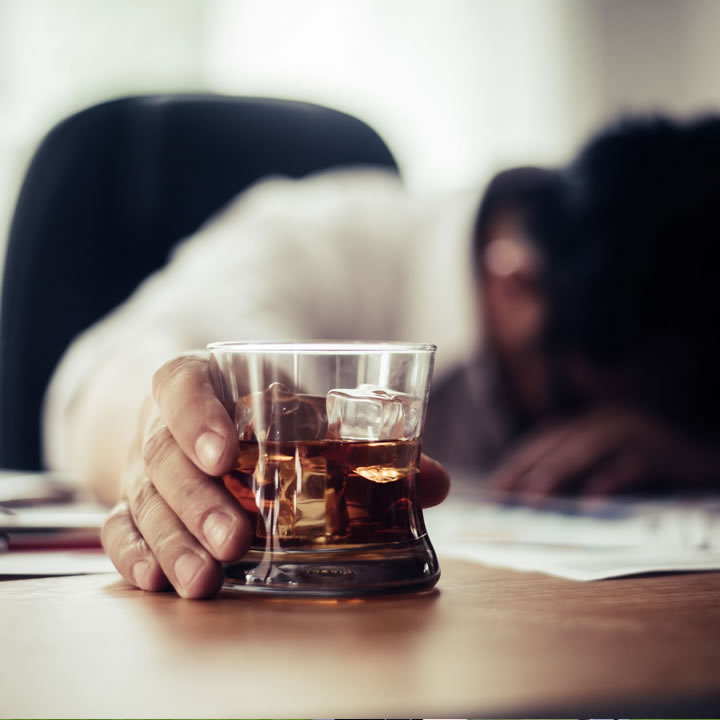As with any addiction, alcoholism has a high risk of recurrence and is most successful in the long term. Even with success, recovery can take years or decades to achieve. The best strategies for alcohol rehabilitation and addiction treatment are developed over time, based on clinical evidence.
Chattanooga Detox is a full-service detox and residential addiction treatment center. The rehab also offers a variety of aftercare programs that helps it easier to maintain sobriety after treatment. Read more about Chattanooga addiction treatment.
This article lists a few strategies that have worked for other patients who have sought help for alcohol abuse or dependence:
Consistent Accountability
While the early stages of alcoholism are costly and time-consuming, the recovery process is worth it. You’ll spend your working life in recovery, and you’ll be prepared for any challenge that comes your way. Consistent accountability is a key factor in therapy.
If you have a history of lying or breaking laws, or you’ve used drugs or alcohol in the past, you may have a higher risk of relapse.
A thoughtful plan is essential for recovery. If you don’t have any plans for how you’re going to make time for yourself, or you don’t know where to begin, an alcohol program can help.
Healthy, consistent self-discipline is essential for recovery at alcohol rehab. If you don’t have a plan for how to meet your commitments, or you make little to no effort to keep them, a recovery program can help.
Drug & Alcohol Rehab Marietta GA offers help to individuals struggling with addiction to drugs or alcohol. The facility offers both residential and outpatient programs, depending on the individual’s needs and level of addiction.
Self-discipline
Self-discipline is key to effective therapy. It is the ability to “set boundaries” and take control of your life. You’ll want to make this a top priority in therapy. Boundary-setting activities include setting an example for yourself by saying no to things you don’t want to do.
Boundary-setting activities can also occur in your daily life—for example, avoiding activities that don’t feel good or that you don’t enjoy. Setting boundaries can be difficult for people with addictions. This is especially the case if you have a vice or recreational drug addiction.
Monitoring and recording of progress
It is important to regularly check in with yourself on a daily basis to ensure you’re making progress in the areas described above. If you don’t know where to start, starting small can be helpful.
Using an app like My Own Private Therapist can help you keep track of what you’re going through—and get a head start on addressing your needs. Other than your mental health, your physical health can also suffer.
A track record of continual success can be a valuable resource when it comes to recovery.
Exercise for mental and physical well-being
Exercising mentally and physically can be a great way to start the recovery process at Atlanta Rehab. Do something you’ve always wanted to do but just haven’t gotten the courage or motivation to do it.
Get your heart rate up by doing something you’ve been meaning to do for a long time—or worse, do something you’ve been avoiding doing because it makes you anxious or depressed.
Exercise can be designed to help you feel good, not only improve your health but also improve your self-esteem.
A healthy lifestyle
Helpful as it is to limit your alcohol intake on a regular basis, it’s important to make healthy choices when you’re having a large amount of the beverage. If you’re having a lot of wine or beer, you should definitely limit yourself to three glasses or one bottle per week.
Likewise, if you’re drinking a lot of coffee or cigarette smoke, cut back or switch to a healthier beverage. Drinking and smoking are closely related to the health of your liver and heart, so any negative impact is worth discussing with your doctor.
Drinking and drugs affect people of all ages, races, and behaviors.
Alcoholics are more likely to spend time in cars or convenience-store bars; cocaine users are more likely to spend time in nightclubs and restaurants; and non-drinkers have a higher risk of over- or under-inflated heart rates.
Likewise, certain medications, foods, or activities are helpful in managing various stages of alcohol and drug dependence.
If you’ve sought help for alcohol or drug problems, you likely know that treatment is long and hard and that you’ll likely need several months of consistent, careful attention.
In addition to the advice above, it’s helpful to consult with a personal assistant or an alcohol and drug counseling professional. These people can help you plan objectives for recovery, provide referrals for services, and help you stay organized.
Drinking and drug abuse consequences can and do co-exist. By choosing to treat your alcohol problems as a separate disorder, you’ll have less need for anti-social behavior and will have a stronger chance of success when trying to get off drugs or alcohol.
Stayisdependence is a serious illness and the solution is not always easy. Each of us has our own particular vulnerabilities that make certain situations less desirable—such as a difficult relationship, a job change, or a tough situation at home.
The key is to find a solution that works best for you and your unique circumstances.

